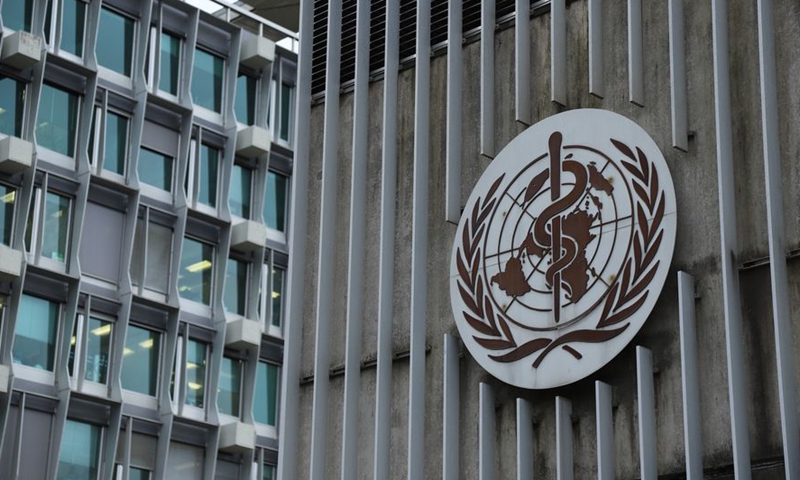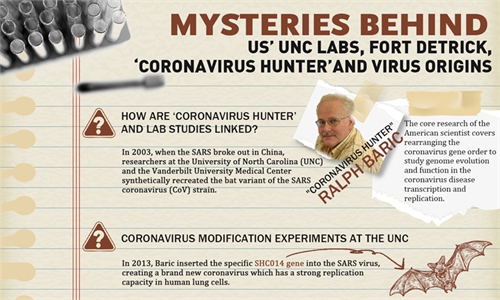China calls on new WHO origins-tracing group to uphold science, resist being used as political tool

Photo taken on Jan. 30, 2020 shows the headquarters of the World Health Organization (WHO) in Geneva, Switzerland.Photo:Xinhua
Chinese Foreign Ministry spokesperson, along with some scientists, on Thursday urged a new WHO group on coronavirus origins to uphold the spirit of science, unbiased attitude, a global perspective, and warned it against being used as a political tool after the world health body on Wednesday nominated 26 experts to form the new team to investigate the virus origins.
The WHO published a list of the proposed scientists from various countries for the Scientific Advisory Group on the Origins of Novel Pathogens (SAGO). Chinese scientist Yungui Yang of the Beijing Institute of Genomics at the Chinese Academy of Sciences is the only Chinese scientist included in the team.
Several scientists from the list told the Global Times that there will be two weeks for public consultation before anything is finalized and formalized.
When asked to comment on SAGO, Zhao Lijian, spokesperson of China's Ministry of Foreign Affairs, said that China will continue to support and participate in international coronavirus origins -tracing, yet opposes any form of political manipulation on the issue.
He also urged all relevant parties to hold the China-WHO joint research on coronavirus origins as the base reference, and make positive contributions to the task.
He added that China hopes the WHO Secretariat, SAGO and all other relevant bodies will uphold an objective and scientific attitude, and insist on a global perspective on the basis of the WHO first-phase coronavirus origins research, and make positive contribution to global coronavirus origins probe and fighting the pandemic.
After SAGO was announced, BBC said it "may be the last chance to find the virus origins," and that the "team will consider if the virus jumped from animals to humans in Wuhan markets or leaked in a lab accident."
In March, WHO experts and Chinese scientists issued a report on coronavirus origins, which ruled "lab leak" theory as "extremely unlikely." It was snarled at by many Western countries, especially the US, for China's "lack of transparency" in forming the report.
Observers told the Global Times that it serves political purposes for those who disregard the WHO report on the first-phase origins-tracing and relentlessly challenge and distort the result of the research. Even the WHO itself comes under great pressure from its benefactors who want to have a say in this purely scientific matter. As a result, the authority decides to put the "hot potato" to SAGO.
The WHO and its members should act carefully with this new mechanism and not let it fall prey to political manipulation, the observers warned.
During a March conference, Yang, who is also a member of the WHO-China expert team said that the team recognizes that there are earlier sequences of coronavirus samples that existed in other countries before the Wuhan outbreak, thus the team suggested tracing the early COVID-19 case samples in a global scope.
Marion Koopmans, a professor and the head of the department of the Viroscience at Erasmus MC, who is also a member of the WHO-China joint team, told the Global Times that "I do hope that this step will help focus the discussions regarding origins of SARS-COV-2 on what is needed further … We first need to see this group starting."

